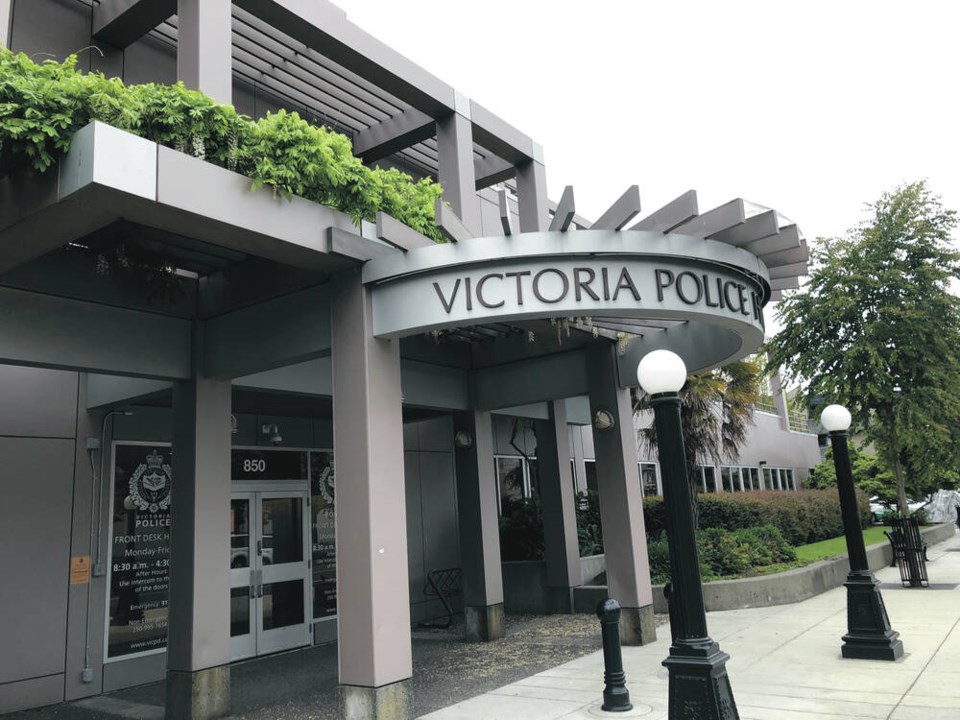A director on the Victoria Esquimalt Police Board resigned at its November meeting, citing lack of information and limitations to the board’s oversight powers.
Paul Schachter, a lawyer and provincial appointee whose resignation took effect Nov. 30, said he did not have the independent access to information — including oversight of police operations — that he needed to ensure the public was getting an efficient police force.
“To be clear, I’m not saying that VicPD is run inefficiently or that it is overfunded or underfunded. There is need for greater transparency and analysis,” Schachter told the board in a resignation speech.
He noted the Victoria police budget, which has grown to $64 million, now represents nearly 25 per cent of the City of Victoria’s core budget, yet it’s not clear what effect the increase has had on crime reduction or public safety.
Schachter said the province has continued to download more responsibilities and costs on the department, yet critical factors are beyond the police board or the department’s control.
“All these factors impede the board’s oversight of efficiency. As the board knows, I have abstained on the 2023 budget recommendations because I am not prepared to serve on the board when I cannot exercise due diligence in providing oversight,” he said.
Schachter said he was also concerned that the board has not been able to address policies that create mistrust within vulnerable communities.
“I am concerned with how critical policies such as de-escalation and use of cultural competency resources have been operationalized, as experienced in recent incidents involving mental health,” he said, adding police officers are put in an impossible position when they are tasked by law with apprehending people in mental health crises.
“This often seems to demand escalation of force and authority to implement their apprehension,” he said, noting that can have adverse effects on both the officer and the person in crisis. “These are momentous issues, yet the board has limited power to review or provide direction on such incidents.”
Police board co-chair Barb Desjardins said the restrictions that Schachter found frustrating are imposed by the Police Act — the board is responsible for the governance and oversight of the department but not its operations.
“This is not a VicPD board challenge [alone] but for all police boards, and we look forward to seeing changes indicated in the special committee report being acted on by the province.”
A report of the special committee on reforming the police has recommended changes to the Police Act that include measures to enhance oversight.
Desjardins said as Schachter was a provincial appointee to the board, it will take some time for a replacement.
She said the board is now short two directors and no longer has a lawyer at the table.



